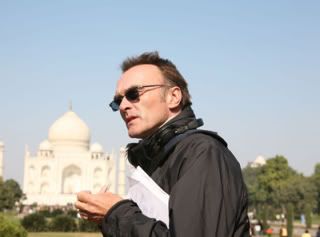 I’ve interviewed Danny Boyle so many times in the last few years that it doesn’t even feel like work; between his convivial enthusiasm and the Northern accent, it’s like sitting down for a chat with one of my brothers-in-law.
I’ve interviewed Danny Boyle so many times in the last few years that it doesn’t even feel like work; between his convivial enthusiasm and the Northern accent, it’s like sitting down for a chat with one of my brothers-in-law.
It also helps that I love his work. “Shallow Grave”, “Trainspotting”, “Millions”, “Sunshine” — spin up any one of those and be transported. And yeah, the last third of “28 Days Later” goes pear-shaped, but the first hour is an expertly controlled exercise in mounting zombie horror.
Boyle’s new movie, “Slumdog Millionaire”, opened yesterday; here’s my review, and here’s our TIFF interview. You’re probably tired of hearing me say this, but don’t wait for the DVD — see this one on a big screen.
Yeah, great movie, that Slumdog. Made me feel all warm and fuzzy about people living in poverty.
I quote Ebert: “A movie is not about what it is about, but how it is about it.”
But that’s what I meant. I was referring to the fantasy approach to grim subject matter. And I’m not against such an approach per se. I just don’t think it worked here, and using Who Wants To Be a Millionaire as a narrative device was very contrived.
Well, there’s a difference between telling a story in a highly stylized manner and telling a story as outright fantasy, and for what it’s worth I think Boyle did the former, rather than the latter.
And sure, the use of “Millionaire” as a device is entirely contrived … but it’s a contrivance that works, giving the narrative structure and rhythm and building to that wonderful payoff.